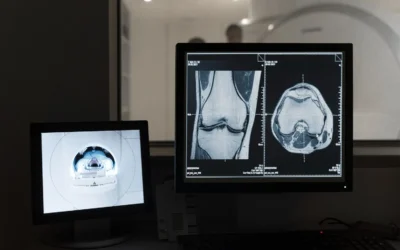Cancer remains one of the leading causes of death worldwide, but early detection has long been recognized as a key to improving survival rates. Traditionally, cancer screenings have been limited to specific tests like mammograms or colonoscopies, each aimed at detecting a single type of cancer. However, a new breakthrough in early cancer detection is poised to revolutionize the field: Multi-Cancer Detection (MCD) testing, exemplified by the Galleri™ test. This innovative approach offers the ability to screen for multiple types of cancer simultaneously, using a simple blood draw. By providing an earlier and more comprehensive detection method, MCD testing could transform cancer diagnosis and significantly improve patient outcomes.
Table of Contents
What Are Multi-Cancer Detection (MCD) Tests?
Multi-Cancer Detection (MCD) tests, also known as liquid biopsy tests, represent a groundbreaking approach to early cancer screening. These tests analyze cell-free DNA (cfDNA)—tiny fragments of DNA that are shed by cells, including cancer cells, into the bloodstream. By examining specific methylation patterns in the cfDNA, MCD tests can detect abnormalities that signal the presence of cancer. This method holds the potential to detect multiple types of cancer, including those for which no routine screening currently exists, such as pancreatic, ovarian, and liver cancers.
MCD testing represents a major step forward in cancer diagnostics for several reasons:
- Early Detection of Multiple Cancers: Rather than focusing on a single cancer type, MCD tests can screen for more than 50 types of cancer in one test.
- Non-Invasive: Unlike traditional biopsies, MCD testing only requires a small blood sample, making it a less invasive and more convenient option for patients.
- Improved Treatment Outcomes: Early detection has been shown to improve the chances of successful treatment, reducing the overall mortality rate for cancer patients.
The Galleri™ Test: A Leader in Multi-Cancer Detection
One of the most promising MCD tests available today is the Galleri™ test, developed by Grail. Galleri is a blood-based screening tool designed to detect abnormal methylation patterns in cfDNA that are associated with various types of cancer. What sets Galleri apart is its ability to not only detect the presence of cancer but also identify the tissue of origin, guiding follow-up diagnostic testing and potential treatment.
How Does the Galleri™ Test Work?
- Cell-Free DNA Methylation Analysis: The Galleri test uses next-generation sequencing to analyze the methylation patterns in cfDNA, which differ between cancerous and normal cells. This allows the test to detect even trace amounts of cancer-specific signals in the blood.
- High Specificity and Sensitivity: Galleri is designed to offer high sensitivity, detecting many types of cancer in their early stages while maintaining a low rate of false positives. This is particularly important to minimize unnecessary anxiety and additional testing.
- Identification of Tissue of Origin: In addition to detecting the presence of cancer, Galleri can predict where in the body the cancer is likely to be located, helping physicians narrow down subsequent testing and interventions.
Why is MCD Testing a Game-Changer?
Cancer screenings have traditionally been limited in scope, targeting one cancer at a time. For example, mammograms are used to detect breast cancer, and colonoscopies are utilized for colorectal cancer screening. While these tests are critical for early detection in specific cases, they only cover a fraction of the total cancer types that patients may develop. Galleri™ and other MCD tests break away from this limitation by providing a comprehensive screening solution in a single test. This could lead to earlier diagnosis across a wider range of cancers, some of which are difficult to catch until they’ve reached advanced stages.
Key Benefits of Galleri™:
- Screening for 50+ Cancers: With the ability to screen for more than 50 types of cancer, Galleri provides a broad-reaching test that covers many cancers for which traditional screenings don’t exist.
- Potential for Improved Outcomes: Numerous studies show that early detection increases the likelihood of successful treatment. Detecting cancer before symptoms appear could save lives by enabling earlier and more effective interventions.
- Integration with UDS Services: At UDS, we are proud to offer the Galleri test in conjunction with our existing diagnostic tools. By combining the Galleri test with ultrasound diagnostic screenings, we can offer patients a more comprehensive and thorough early detection program.
Practical Considerations for Patients
If you’re considering MCD testing, such as the Galleri™ test, here are a few things to keep in mind:
- Who Should Consider Testing? MCD tests are particularly beneficial for individuals at higher risk of cancer due to factors such as age, family history, or lifestyle. However, even those without obvious risk factors can benefit from the peace of mind provided by early detection.
- Follow-up Testing: While MCD tests are highly accurate, a positive result will usually require further diagnostic tests to confirm the presence and type of cancer.
- Consult Your Doctor: Always consult with a healthcare provider to discuss whether MCD testing is appropriate for you, based on your medical history and risk factors.
Conclusion
The advent of Multi-Cancer Detection (MCD) testing, particularly with the introduction of the Galleri™ test, marks a new era in cancer screening. With the potential to detect over 50 types of cancer from a single blood draw, these tests offer a revolutionary, non-invasive method for early cancer detection. By identifying cancer in its earliest stages, MCD tests like Galleri™ hold the promise of improving patient outcomes, reducing cancer mortality, and potentially saving lives. If you or a loved one are concerned about cancer risk, it may be time to consider this groundbreaking screening option.





0 Comments